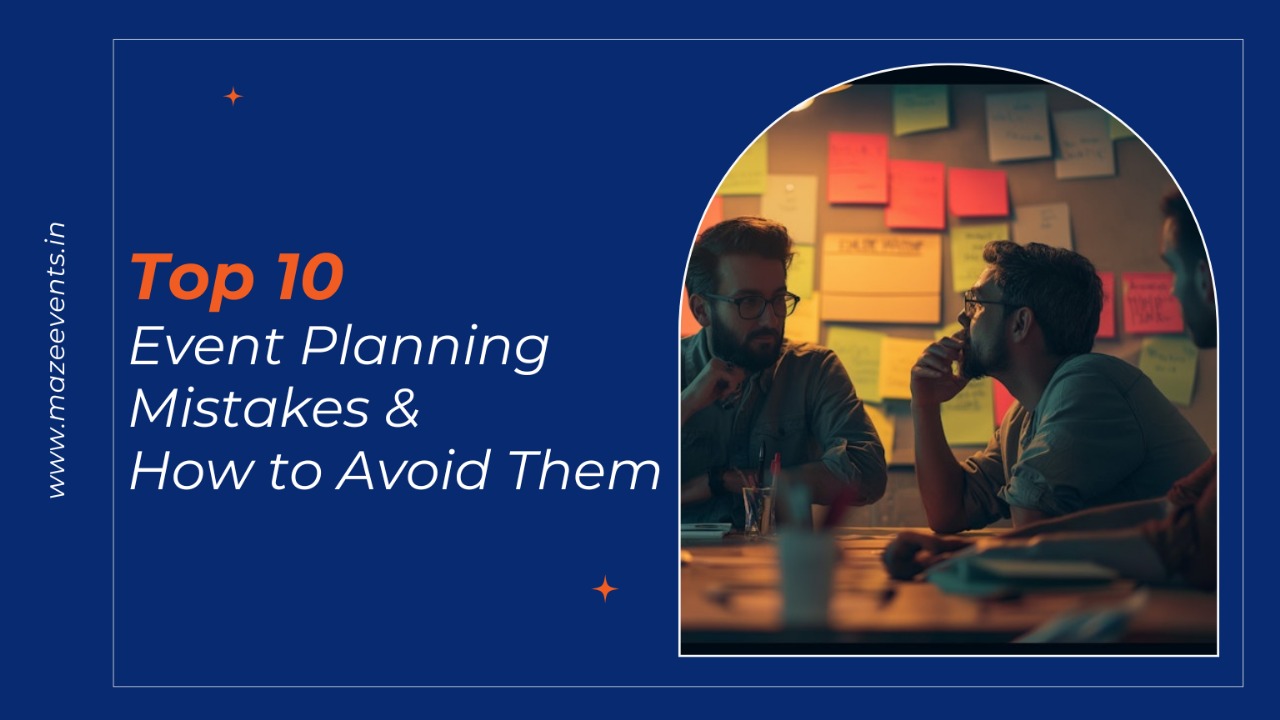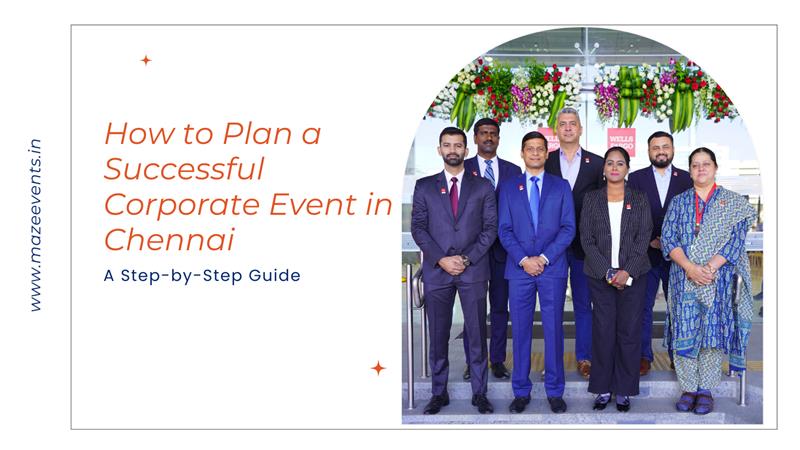
Published in:
Event Management
Top 10 Event Planning Mistakes & How to Avoid Them
It may be disastrous for an event planner to let small details fall between the cracks. If you neglect any one task, your event will fail miserably.
When your activities don’t go as planned, people may become extremely resentful and take to social media to disparage you or warn their connections not to do business with you.
Customer reviews are significantly more credible than any advertising you do, whether you like it or not. Since your next job as an event planner may depend on it, you must do it correctly.
In this blog, let’s find the common event planning mistakes and errors to avoid in 2025.
Common Event Planning Mistakes and How to Avoid Them
1. Ignoring Competitive Events
Finding out if there is a competitive event happening at the same time as yours and whether it will affect it is a crucial step in event planning.
Imagine holding a baby shower in an open field in one area of the field while a memorial service is taking place nearby on the opposite side. others will think you and the others at your event are very rude and inconsiderate.
The point is obvious, even though the example is a bit extreme: find out what events are happening around the time you’ll be hosting yours. It will assist you in selecting the best time and place.
Having a neighborhood party on Thanksgiving is another example. Yes, there might be a few people there, but most people are at home having Thanksgiving dinner. They aren’t going to your block party, and you’re probably ruining the fun with your loudspeakers.
2. Onboarding Insufficient Check-In Process
Your guests’ initial opinion of your events is determined by their check-ins, and as they say, first impressions are crucial, and you might not have another chance to make a good impression.
Having paid guest spaces taken by non-paying individuals is one of the most heinous outcomes of a poorly executed check-in procedure. Those who paid will be annoyed; some will act out, while others will just give you the worst publicity possible on social media.
Indeed, a poorly executed check-in procedure can make your painstakingly organized event into a disparaging social media trend. Naturally, making sure that your protocol crew is alert and proactive is one method to stop this from occurring at your events.
To expedite and streamline the procedure, you might distribute event passes and have guests scan them when they arrive. Additionally, make sure that no one can enter the event space without first being checked in.
3. Leaving Audience Expertise Out of Session Learning
Allowing your audience to participate in the event is a great approach to make it memorable and interesting for them, especially when you’re planning training sessions.
Even when your speaker is an authority on the issue, the crowd may have quite perceptive opinions. This will make the event more fun and raise the spirits of the audience and the speaker.
Therefore, when planning gatherings of this kind, make sure to include a time window for open discussion.
4. Losing Event Goals
The majority of event planners fail to consider this when making plans. Knowing what you want to accomplish will help you concentrate your efforts.
While it is crucial to make sure that everything runs smoothly during your event, you should first decide what you hope to achieve. Most of the time, your event goal will assist you identify potential problems.
For example, you want a pizza party with at least 100 people and 130 people. This objective will assist you in determining the necessary procedures to ensure the success of your event.
5. Trying to do it all by yourself
Even if you are a great event planner, you will probably feel overburdened if you try to do it all by yourself. To make sure your events go off without sending you into a deep depression, outsource a few things.
It’s acceptable to require some assistance with event planning. To make your events go more smoothly and efficiently, you may, for instance, hire extra caterers or protocol staff.
Sometimes you only need a tool that will take care of most of the event planning minutiae while you do your magic, not extra staff. An event planning tool, for instance, can assist you with scheduling, gathering RSVPs, and even creating and distributing a seating chart to your attendees.
6. Competing With Others in Event Execution
It can go horribly wrong to compete with other event planners or even with the events themselves. People are essentially telling you what you need to do to be a great event planner when they advise you to be distinctive and yourself.
Does that mean you can’t get ideas from other event coordinators? Not at all. Since you are attempting to imitate the outcomes without the method, trying to duplicate the success of another event could backfire on your own.
Additionally, rather than competing with other event planners, you should network with them as an event planner. Keep your event goals in mind and concentrate your efforts on them if you wish to surpass them.
7. Underestimating Event Size
It is never nice to have too little room for your guests. If you are unable to accommodate the persons you invited, what good is it to advertise for a large turnout?
Strategic overestimation is the key to having adequate event space. If you only invited 100 individuals to an event, don’t inflate the number of attendees to 500.
You may even establish a registration cap if you’re worried about going over the allotted number of attendees; once it’s reached, individuals won’t be able to sign up or pay for the event.
Conclusion
Although event planning and management might be challenging, you can prevent major event catastrophes by avoiding the errors mentioned in this article.
Relying on event management companies can help you avoid all the event planning mistakes and event administration and preparation is a fantastic approach to achieve this. It will significantly raise the possibility that your events will go off without a hitch and spare you from worrying about potential problems all the time.
SHARE ON



